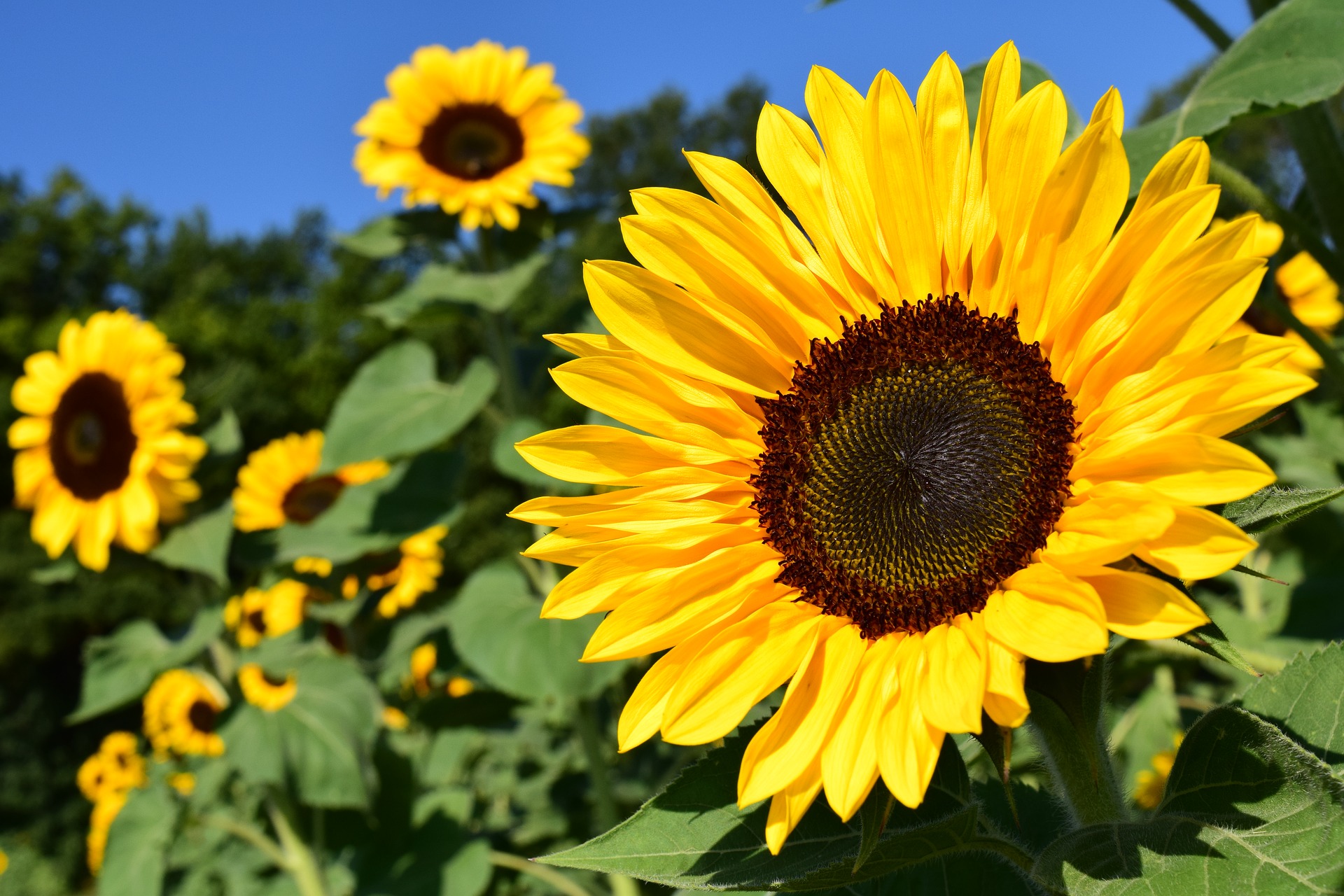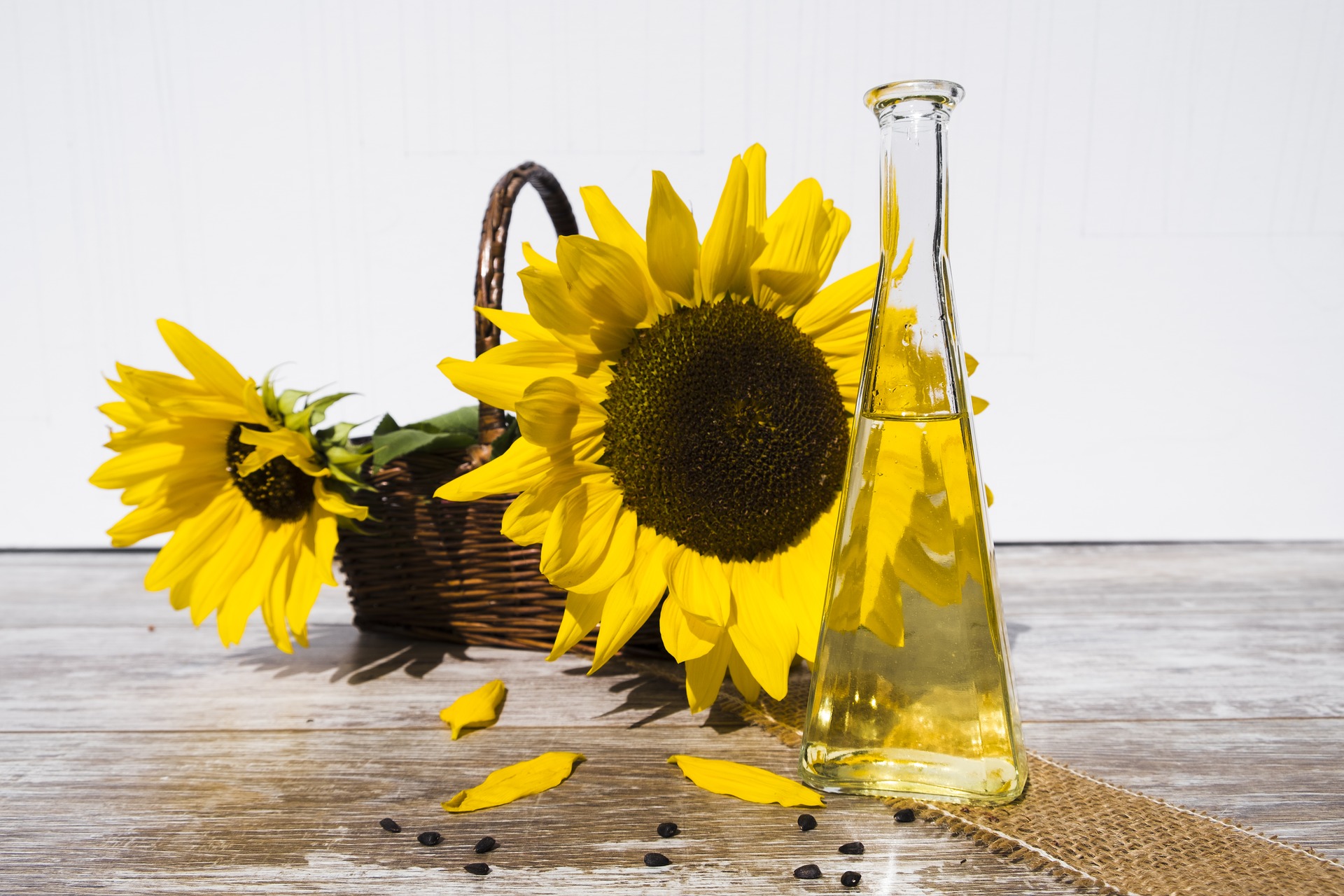
Sunflower (Helianthus annuus)
Plant:
Sunflower, identified by scientists as Helianthus annuus, is an oilseed belonging to the nightshade family. It is a plant that gives life to the green monotony of many agricultural fields, thanks to its yellow flowers, arranged around a large disc covered with oilseeds, attached to a long green trunk that can reach three meters in height. Vincent Van Gogh was one of the many painters who paid homage to them – between 1886 and 1888 he painted seven works on sunflowers – because he saw the plant as a symbol of happiness and gratitude.
In addition to its natural beauty, the Sunflower is also known around the world for being responsible for the production of vegetable oil, holding the largest share in the world. The oil is extracted from its seeds, these are the fruits that are found in the heart of the Sunflower. An essential nectar in cooking but also in industry, due to the various properties and nutrients it offers to humans.
But there is more, the potential of the Sunflower is still being used by farmers to clean and transform the soil. This plant is widely used to remove toxic chemicals from the soil, such as arsenic, lead, and uranium, among others.
Properties:
Antioxidant, anti-inflammatory, and antibacterial are some of the properties that Sunflower offers, in addition to being a food rich in proteins, fats, carbohydrates, fibers, vitamin E, and minerals like zinc, selenium, copper, and folic acid.
Benefits:
- cholesterol,
- aging,
- migraine,
- fatigue,
- fever,
- arterial pressure,
- prevents rheumatoid arthritis and ulcers,
- lowers blood sugar,
- risk of degenerative imbalances,
- cardiac system,
- immune system,
- intestinal system,
- nervous system,
- premenstrual tension…
How to consume it:
From the Sunflower, you can eat almost everything on a daily basis: leaves, flowers, seeds, oil, and roots. In food, you can use the petals in salads, in a risotto or you can also cook the flower bud before opening.
Sunflower seed, on the other hand, is a good option to put in soups, to season salads, to make sauces, to enrich risotto, or simply to serve as an aperitif. Another way to enjoy the benefits of Sunflower seed is an infusion (1 tablespoon is the recommended proportion for 1 liter of water or you can make an infusion of petals) or a decoction (boil a portion of the roots sunflower, which is indicated for rheumatic pain) and also make poultices (indicated for wounds, contusions or animal bites).
Sunflower consumption can also be done through sprouts. In this case, place a handful of natural seeds (without the husk and without being roasted) in a glass of which more than 1/3 is water. Leave the glass-covered for a day in a cool, sunless place. Always keep the seeds moist until germination begins. At this stage, you can already eat the sprouts or choose to put these sprouted seeds in a little soil and wait two or three days to be able to harvest the Sunflower sprouts.
Contraindication :
Consumption should be done in a moderate way, despite all the benefits, because you are eating food rich in fat and calories. Therefore, it is prudent not to overeat it, it can cause an imbalance in the stomach and one of the symptoms is heartburn.
In addition, each organism being different, it is necessary to be aware of any incompatibilities, total or temporary, generated by its ingestion.
 Bruno /Germany’s Photo on Pixabay. The oil is extracted from its seeds, these are the fruits that are found in the heart of the Sunflower.
Bruno /Germany’s Photo on Pixabay. The oil is extracted from its seeds, these are the fruits that are found in the heart of the Sunflower.
This text is an awareness. Depending on the season of the year and in which moment you are, it is up to each Being to feel whether he should consume this food. The dosage and frequency depend on the nature and physical condition of each Human Being.
Learn more about the seeds on:
Seeds are sources of life, but pay attention to its energy validity




